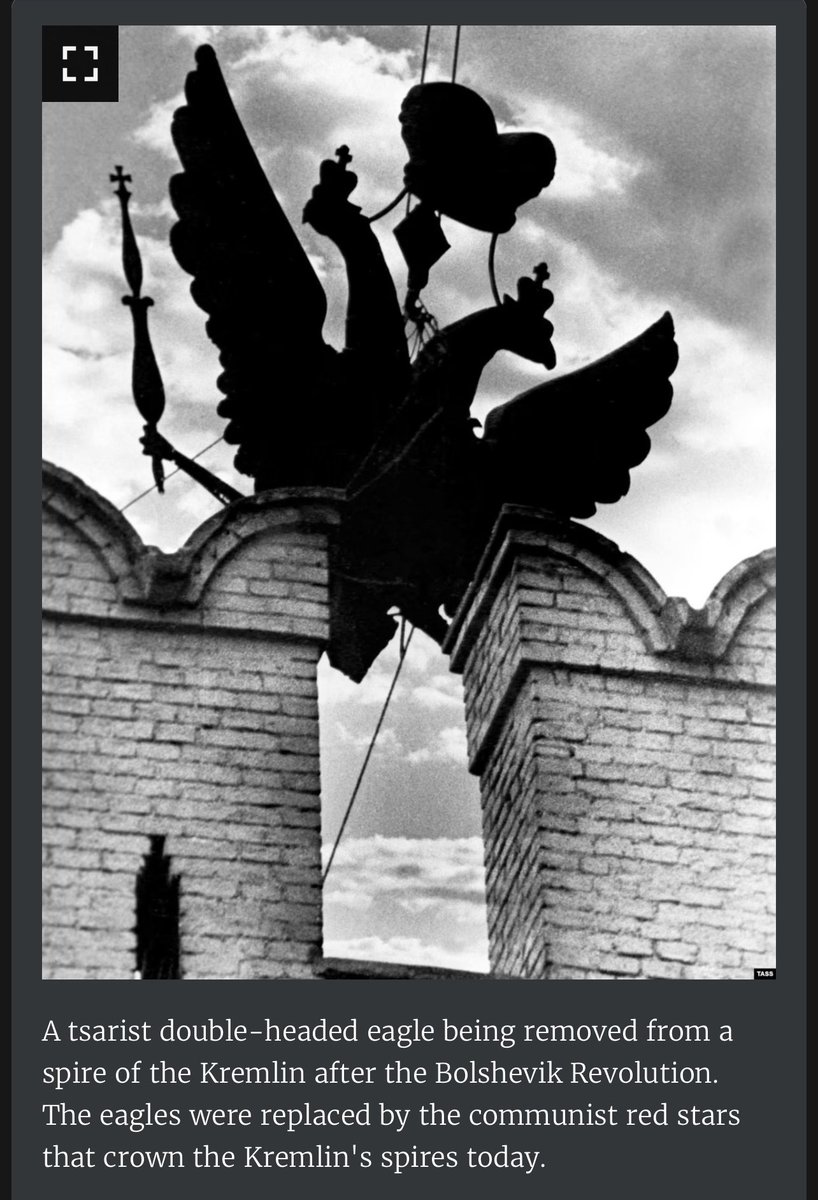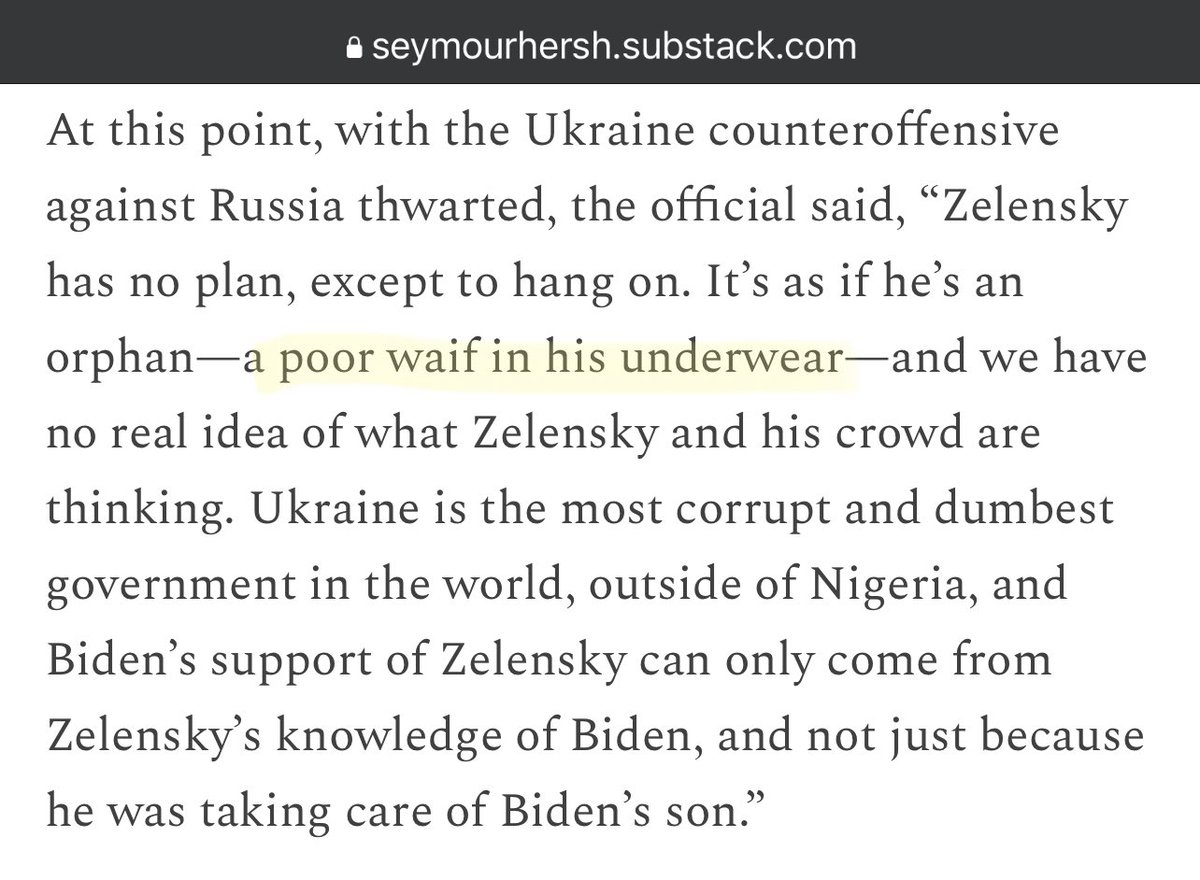Can you imagine if Eastern Europeans talked about the rest of the world using the same clichés, tropes, stereotypes, & propaganda commonly used about them?
🧵…
🧵…
“As you can see, Ireland is mostly pro-London. The white areas are where the English [speakers] live and where there wouldn’t be resistance to an English invasion.”
#parody
#parody

“Much of the US voted for the pro-Russian party - including Alaska, which is historically Russian anyway (Tsar Alexander II’s mistake). A referendum on unification with Russia held under occupation would solve America’s political issues.”
#parody
#parody

“How can countries expect to be taken seriously anyway as viable states when they elect an entertainer as President? You really think this mere actor can stand up to Russia?”
#parody
#parody

“Britain has never been an imperial power because, as you can see, it never took part in the colonisation of Eastern Europe. It just had to fight some defensive wars elsewhere which doesn’t count as they developed their colonies.”
#parody
#parody

“These are artificial states that owe their existence to Britain but they are just confused as they are really one fraternal people with the British. We should respect Britain’s historical sphere of influence.”
#parody
#parody

“Unfortunately, there are still some ‘hawks’ in those places that take the ‘hardline’ position that their sovereignty should be respected and that things like genocide must end.”
#parody
#parody
“Rather than listen to the people who actually live in countries that gained their independence from Britain, it’s more important we understand the mysterious British soul.”
#parody
#parody

“Obviously, the English have the right to protect its English speakers across the English world in any way it chooses.”
#parody
#parody

“Those people don’t have agency anyway. Any decision they take today not in the interests of their [large neighbour / former imperial ruler] should be attributed to Eastern Europeans instead as a foreign-backed colour revolution.”
#parody
#parody
“France actually has a legal sovereign right to transport sanctioned goods by land through South American countries under any circumstances to its enclave [sic]. If not, it can revoke those countries’ independence. Why start WW3 over Suriname?”
#parody
#parody

“This region in red has experienced violence over the last thousand years so any issue or conflict there today is just some complicated, ancient tribal conflict [even when one aggressor has blatantly invaded them]. How can we get involved when they have that history?”
#parody
#parody

“These countries in red have extremists within their population so urgently need to be de-Nazified [regardless of whether it’s a modern democracy where extremists couldn’t get elected and the country doing the deNazifying has epidemic & institutionalised extremism].”
#parody
#parody

“These countries in red have experienced some kind of political crisis, which obviously necessitates military intervention from its [large neighbour or former imperial ruler]… [even when it deliberately generated it].”
#parody
#parody

“They should have just respected international treaties with [their large neighbour / former imperial ruler]… [even though those things all say that country has to respect their sovereignty].”
#parody
#parody
“Switzerland is totally encircled by Germany and its proxy, puppet states. How can we expect the Swiss Army to just remain peacefully within its borders under these circumstances?”
#parody
#parody

“Look at how the territory of the EU has shrunk. How can you not expect that humiliation by provocateurs to result in military conflict? The EU is just re-establishing what is historically EU territory.”
#parody
#parody

“France was founded in 1944 when it gained independence amidst the collapse of the Nazi empire & began its experiment as an independent democracy. (Any previous history of their statehood and its continuation in international law during occupation can be disregarded).”
#parody
#parody
And remember to always define countries by their previous occupation, even when it’s not even relevant to the topic.
“The tiny ex-Nazi state of Belgium was knocked out in the group stage of the 2022 World Cup.”
#parody
“The tiny ex-Nazi state of Belgium was knocked out in the group stage of the 2022 World Cup.”
#parody
“Western Europe is home to many Eastern European expats who often stay temporarily but there is still significant brain drain as Western European immigrants move to places with faster economic growth over the past few decades, such as Eastern Europe.”
#parody
#parody

If you’d like to learn more about the world then, remember, don’t listen to local journalists but rather correspondents based 1000 KMs away in the capital of a large neighbouring country who somehow got major developments 100% wrong over the past few decades.
(Still #parody)
(Still #parody)
And if you liked this thread then you might like this one too:
https://twitter.com/badbaltictakes/status/1586812222684254216
There are so many I missed…
“Denmark is located on Germany’s doorstep. When its troops conduct regular exercises anywhere in the country then it’s ‘on the German border’. I think ‘Denmark’ actually translates as ‘German border land’.”
#parody
#parody
“Minority language speakers all have a single worldview, which can be easily summarised without even speaking to them. It’s not like they have complex identities, different life experiences, multilingual skills, generational changes, and decades of mixing & integration.”
#parody
#parody
“And, of course, wars aren’t really waged by an invading army against an invaded country. They’re really a proxy war by [whichever country you deem to have agency that happens to support the invaded country].”
#parody
#parody
“England & Germany are fraternal peoples as they both speak Germanic languages. Their fraternal ‘Battle of Britain’ in 1940 could have been avoided if we just reminded both sides that they are brothers.”
#parody
#parody
• • •
Missing some Tweet in this thread? You can try to
force a refresh














